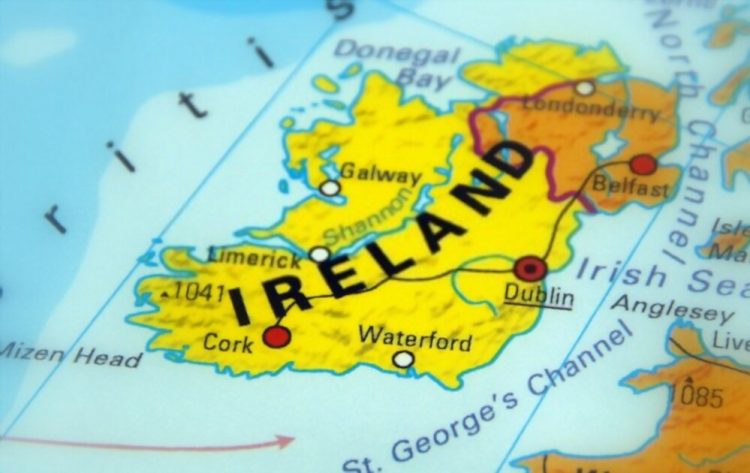The realization of a united Ireland in the Post-Brexit period depends on English and Scottish nationalism. As it says in Holyrood, nationalism refers to “a belief in the existence of a nation and therefore the belief that something should follow from that,” says Ailsa Henderson, Professor of Political Science at Edinburgh University. According to LSE, Scottish nationalism claims that not blood but voluntary attachment to Scotland defines membership in the Scottish nation. However, English nationalism is of ethnic type. I argue that English and Scottish nationalism may lead to a united Ireland.
Civic and ethnic nationalism
As it says in LSE, we usually think of nationalism as a right-wing ideology. In nationalism, people and governments consider members of the nation superior to non-members. Non-members cannot become citizens or full members of the country. This type of nationalism, commonly known as ethnic nationalism, stands in contrast with civic nationalism. Civic nationalism allows anyone to identify with the government and its civic values regardless of their ethnicity. In civic nationalism, not blood but voluntary attachment to the country and participation in its civic life defines membership in the nation.
Scottish nationalism
According to the Guardian, The Scottish National Party (SNP) is not the progressive, forward-thinking party its supporters claim. Scottish nationalism has attracted large numbers of Scots whose motivation is anti-Englishness and anti-Toryism. Scottish nationalists call people who oppose Scottish independence “traitors”, “quislings”, “not true Scots”. Nationalists told them to “go back to England” when they grew up in Scotland.
Elliott Green tells LSE that Scottish nationalism is civic in origin rather than ethnic. This is in contrast with what the Guardian says.
Elliott Green is an associate professor of development studies in the Department of International Development at the LSE. He says that the contrast between the SNP and other nationalist movements and parties is striking. The SNP explicitly promotes civic nationalism. The SNP is explicitly nationalist, not only in its name but also in its goal to create a Scottish nation-state. Based on Scottish nationalism, residents of Scotland have the right to vote in the independence referendum. However, those Scots who live outside Scotland, even within the U.K., cannot vote.
English Nationalism
According to the economist, English nationalism is the most disruptive force in British politics. Brexit would have been impossible without it. The clash between Scottish and English nationalism may well break up the country. The distinction between “English” and “British” has always been hazy, and now the very meaning of “Englishness” is changing before our eyes. As Elliott Green tells LSE, the British National Party (BNP) in the U.K. has explicitly rejected civic nationalism favouring some form of ethnic nationalism. BNP has anti-immigration policies.
English nationalism: A threat to Britain
According to GQ, Gavin Esler says ‘English nationalism is the biggest threat to the United Kingdom. Gavin Esler is the chancellor of the University Of Kent and grew up in Glasgow and Edinburgh. He says Westminster has neglected Scotland, Wales and Northern Ireland. Gavin Esler’s new book “How Britain Ends” explores how federalism may be the last hope to pacify England and save Britain. He says the current dynamics of Westminster’s has failed in its relationship with Edinburgh, Cardiff and Belfast.
Brexit and a united Ireland
According to TIME, Northern Ireland voted to remain in the E.U. by a majority of 56% to 44%. Brexit has revived the view of a united Ireland. The 310-mile-long Irish border between Northern Ireland and the Republic had barbed wire watchtowers with machine gun-wielding soldiers. Now the border is entirely different. Today, there is a wide motorway with cars speeding between north and south. Muiris MacCarthaigh says these changes are partly because Britain departs from the European Union. Muiris MacCarthaigh is a senior lecturer in politics and public administration at Queen’s University in Belfast.
English Nationalism and a United Ireland
As it says in commonweal, according to nationalists, the Irish were victims of centuries of British aggression. They were victims of theft of land, the expulsion of native elites, and the transplanting to Ulster of Protestants loyal to the colonial regime. Not only do the British public not care about Ireland, but they hardly concern themselves with Northern Ireland. The British public means mostly the English people. The Brexit process happened as if Ireland and its people did not exist. According to TIME, Michelle O’Neill says Westminster does not serve Irish interests. Michelle O’Neill is vice president of Sinn Fein and deputy First Minister of Northern Ireland.
Brexit has also activated a historical sense of betrayal on the Northern Irish against Britain. One curious fact of the Northern Irish psyche has been actual for a long time. There’s also no love lost between the Northern Irish unionists and Great Britain: Irish unionists feel let down and betrayed. According to an Irish post, Mary Lou McDonald has told an American audience that Brexit is the “product of narrow English nationalism”. Mary Lou McDonald is the Leader of Sinn Féin. She said that political parties need to begin preparations for a united Ireland.
Conclusion
Brexit is the product of English nationalism. Westminster, following an ethnic nationalism, does not care about the interests of Northern Ireland. Scottish civic nationalism considers the interests of people living in Scotland. The best way for Northern Ireland to achieve its attractions is the establishment of a united Ireland.





























